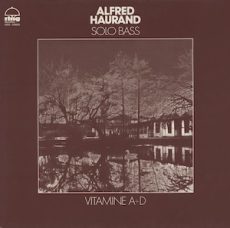
Daily Dose Of Jazz…
Ali Haurand was born Alfred Josef Antonius Haurand on November 15, 1943 in Viersen, Germany. After an apprenticeship as a confectioner and a business manager, he studied from 1966 to 1973 at the Folkwang School and the Rhineland Music Academy. He initially played with his own trio and from 1967 in the trio and quintet of pianist George Maycock. In 1968 he also toured with Philly Joe Jones, Jacques Pelzer, René Thomas and Jan Huydts.
He performed with Ben Webster, Don Byas, John Handy, Bobby Jones and Wilton Gaynair. This was followed by his own groups, Third Eye, the European Jazz Quintet with Leszek Zadlo, Gerd Dudek, Alan Skidmore and Pierre Courbois. Together with Alan Skidmore and Tony Oxley, they formed the trio SOH. Haurand played with his long-time companions, the saxophonist Gerd Dudek and the pianist Rob van den Broeck, in the formation The Trio.
Since 1982, the European Jazz Ensemble, which he formed out of the European Jazz Quintet with varying lineups that included Allan Botschinsky, Stan Sulzmann, Joachim Kühn and Daniel Humair. In the 2000s, he took part in several jazz and poetry projects.
For decades he was a presenter and consultant to the WDR television jazz editorial team, and for twelve years he was artistic director of the Düsseldorf Jazz Rally. From 1987 he was the founder, director and organizer of the Viersen Jazz Festival until 2014. For over 20 years he organized the jazz concerts in the Süchtelner Weberhaus.
Double bassist and bandleader Ali Haurand, who was also a television presenter, music producer and festival manager, died on May 28, 2018.
More Posts: bandleader,bass,history,instrumental,jazz,music
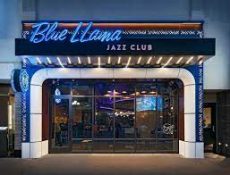
The Jazz Voyager
Heading west and coming in early to Ann Arbor, Michigan to investigate the African American Culture and History Museum, the Flight Museum and given time the Chelsea Area Historical Society Museum to see what the city and surrounding areas offer. The next leg of our tour stop of jazz clubs for a visit this week is the stylish lounge restaurant, Blue Llama. With Afro-Caribbean cuisine, designed by James Beard Award-winning Chef JJ Johnson paired with jazz, it creates a destination music venue.
On tap for entertainment is South African pianist Nduduzo Makhathini bringing the African warrior code that is deeply reliant on music for motivation and healing to the bandstand. With a deep influence of McCoy Tyner and Coltran’s quartet he allows his vision to be heard.
The Blue Llama is located at 314 S Main Street, 48104. For more information visit https://bluellamaclub.com.
More Posts: adventure,club,genius,jazz,music,piano,preserving,travel,vocal
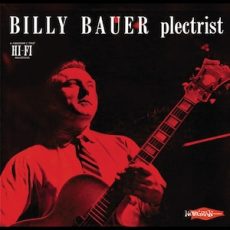
Daily Dose Of Jazz…
William Henry Bauer was born in New York City on November 14, 1915 and as a child he played ukulele and banjo before switching to guitar. He played with the Jerry Wald band and recorded with Carl Hoff and His Orchestra in 1941, before joining Woody Herman in 1944 as a member of the First Herd. In 1946, he played with Benny Goodman and Jack Teagarden.
Working in small groups led by bassist Chubby Jackson and trombonist Bill Harris, Bauer established himself as a soloist in the bebop movement. In 1946, he began working with Lennie Tristano, enjoying a natural synergy in their style and approach. Their development of intuitive music led to the 1949 session Crosscurrents. He would go on to become a member of the NBC Tonight Show band in New York City and played in the Today Show band at the start of early television.
Continuing his pioneering guitar work in a partnership with Lee Konitz, whose avant-garde saxophone work was a perfect match for Billy’s guitar. The dialogue between the musicians crossed styles from bop and cool to the avant-garde. Their recordings have been described as “some of the most beautiful duet recordings in jazz. Duet For Saxophone and Guitar was an unusual instrument pairing which has been described as redefining the role of jazz guitar.
Bauer made one album under his own name, Plectrist, in 1956. Later, he arranged the song No One that appeared on the album Henry Golis Presents Good Music with Friends in 2007.
Guitarist Billy Bauer died of pneumonia in New York at the age of 89 on June 17, 2005.
More Posts: bandleader,guitar,history,instrumental,jazz,music
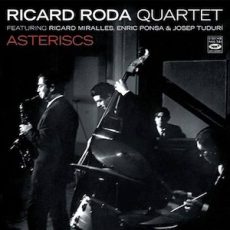
Daily Dose Of Jazz…
Ricard Roda was born November 13, 1931 in Barcelona, Spain and he studied at the Barcelonas Conservatorium alongside his close friend Tete Montoliu. He began playing jazz in 1947 having started when he was only seventeen in the Crazy Boys orchestra in 1948. While working at Jamboree Club he played with visiting musicians such as Tony Scott, Art Farmer and Lucky Thompson.
During the Seventies he was a member of Orquestra Mirasol Colores in 1974 and were pioneers of jazz rock fusion in his hometown. He would go on to play popular music in orchestras led by Xavier Cugat, Frank Pourcel and Orquestra Latina Americana. Ricard worked with Catalònia Jazz Quiartet, Frank Miller y Su Hispania Soul, and Latin Combo.
His vast experience in the local jazz scene didn’t limit him to the genre. He also played with musicians outside the jazz scene like Joan Manuel Serrat and Liza Minelli. Alto saxophonist Ricard Roda died on November 18, 2010 in Barcelona, five days after his seventy-ninth birthday.
More Posts: bandleader,history,instrumental,jazz,music,saxophone
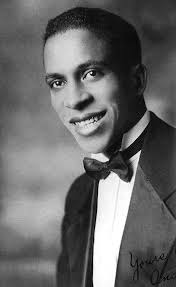
Jazz Poems
BLACK AND BLUE
(WHAT DID I DO TO BE SO BLACK AND BLUE)
VERSEOut in the street,
Shufflin’ feet,
Couples passin’ two by two,
While here am I,
Left high and dry, black, and ‘cause i’m black I’m blue.
Browns and yellers
All have fellers,
Gentlemen prefer them light.
Wish I could fade,
Can’t makee the grade,
Nothin’ but dark days in sight.
REFRAIN
Cold empty bed,
Springs hard as lead,
Pains in my head,
Feels like old Ned,
What did I do
To be so black and blue?
No joys for me,
No company,
Even the mouse
Ran from my house,
All my life through
I’ve been so black and blue.I’m white
Inside,
It don’t help my case
‘Cause I
Can’t hide
What is on my face,ooh!
I’m so forlorn,
Life’s just a thorn,
My heart is torn,
Why was I born?
What did I do
To be so black and blue?
REFRAIN
Just ‘cause you’re black,
Folks think you lack,
They laugh at you
And scornyou too,
What did I do
To be so black and blue?
When you are near,
They laugh and sneer,
Set you aside
And you’re denied,
What did I do
To be so black and blue?
How sad I am
Each day I feel worse,
My mark of Ham
Seems to be a curse, ooh!
How will it end?
Ain’t got a friend,
My only sin
Is in my skin,
What did I do
To be so black and blue?
ANDY RAZAF | 1895~1973
MUSIC BY THOMAS “FATS” WALLER
from Jazz Poems ~ Selected and Edited by Kevin Young
More Posts: book,classic,collectible,history,jazz,library,poet




